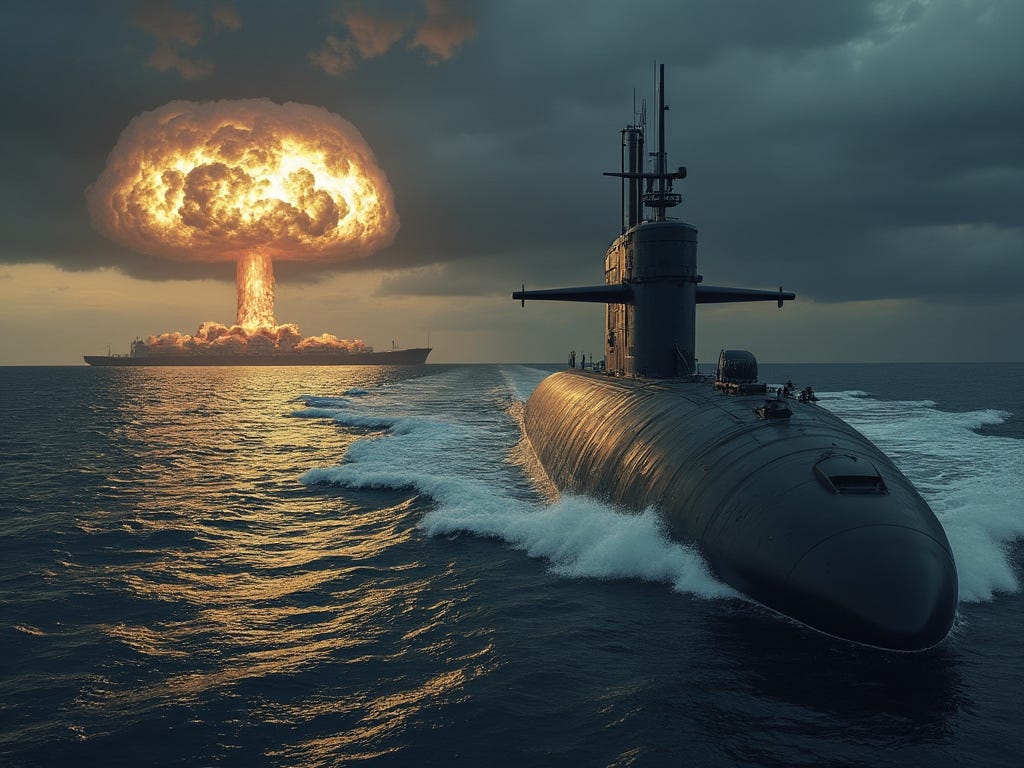The Soft US Military Takeover of Australia Is Simply a “Pooling of Sovereignty”
By Paul Gregoire: Sydney Criminal Lawyers Blog
Australian sovereignty has always been tenuous, as the grounds upon which the British Crown claimed the great southern continent as its own were based on the Doctrine of Discovery and the legal concept of terra nullius, which stipulate that an empty land without sovereigns can be claimed, and this occurred despite the fact the continent was already populated by First Nations peoples.
So, perhaps it is this uncertainty around sovereignty that’s led senior government figures, from both major parties, to consider the inroads the United States has long been making on to this continent, and has continued at an ever-increasing pace since the 2021 AUKUS pact announcement, is no reason for concern, as middle management has always been their role in the global hierarchy.
But former Home Affairs secretary Mike Pezzullo, who, despite being disgraced out of office, is now a major media commentator, doesn’t see the inroads that the US is making onto local soil as a “compromise of sovereignty” but rather, as the Pentagon moves more armaments and troops into the Indo Pacific region, the nation should consider this as “a pooling of sovereignty”.
And the reason why Pezzullo is having to mask this process with ideas such as a sharing of power, which would only be plausible if both sides of the pooling were on an equal footing, is because as this soft military takeover has been gaining momentum over the past two years, questions about waning sovereignty have been raised by some of our most senior political figures.
A Massive Conspiracy
“What they are claiming is an elaborate conspiracy theory,” Professor Peter Dean, a director of Sydney University’s United States Studies Centre told The Weekend Australian.
“They are asking people to ignore the statements of their own government about us having sovereign control of those capabilities,” the professor laid it out straight. “If that is the case then there are dozens of politicians in the three AUKUS countries and thousands of officials all undertaking a vast conspiracy to delude the public of three continents.”
Dean was referring to claims made by former prominent Labor politicians, Paul Keating, Bob Carr and Gareth Evans, have been making in regard to the AUKUS arrangement, which was announced by then PM Scott Morrison in September 2021, and at that stage appeared to be a security pact between our nation, the US and the UK, which aimed to equip Australia with eight nuclear-propelled submarines.
Yet, from the moment it was sprung, AUKUS has never been as simple as just acquiring some subs. And the “conspiracy” that senior Labor figures are asking us to buy, has become ever more apparent since PM Anthony Albanese unveiled the guts of the AUKUS deal in March 2023, which included an exorbitant price tag of $368 billion, as well as further US inroads onto this continent.
So, whilst it was a bold move for the United States Studies Centre professor to state plainly what has been occurring in regard to AUKUS across three continents, it would also appear that this process, which has locally involved the ongoing top-down militarisation of our society, has impacted in a much greater manner here, than the other AUKUS nations have been experiencing.
Conspiracy Spelt Out
Dean and Pezzullo were rolled out by the Murdoch press to refute the claims of the former Labor leaders, as they’re said to be “key architects of the past 40 years of Australian defence policy”, and the criticisms that ex-government ministers have been levelling at the AUKUS pact, which is now about much more than mere submarines, is obviously frustrating federal Labor.
Former Australian foreign minister Gareth Evans responded to the article with a piece published in The Australian on Tuesday. And he outlines five reasons why he, Keating and Carr oppose the AUKUS pact. The first is that there are zero guarantees that any of the submarines will ever be provided or built, as the US and UK have been given the ability to renege on delivery in law.
Evans then notes that despite the stated advantages of nuclear-powered submarines (SSN), only two would ever be needed at any one time to patrol local waters. And even if the $368 billion price tag can be met, it will mean that the nation cannot invest in other emerging military capabilities. And he then labels the price “indefensibly high”, especially as it doesn’t guarantee US support for Australia.
The ex-foreign minister further underscored that the 1951 ANZUS (Australia, New Zealand and US) treaty provides no guarantee that the US would support an Australia under attack. Indeed, the US could plausibly set up base here and during its desired military conflict with China over loss of economic hegemony, pull out of the Indo Pacific if Beijing gained an upper hand in the conflict.
Following the signing of ANZUS, the US and Australia went on to establish two joint facilities on this continent, which include Pine Gap in central Australia, which gathers intelligence signals from around the globe, as well as the North West Cape base that picks up naval communications.
We’ve got a live one here, Sam
But it wasn’t until the Obama government’s pivot to Asia in 2011 that the States began to make further inroads onto this continent. The 2014 Force Posture Agreement facilitated greater interoperability between the air forces of both nations, the stationing of 2,500 US marines in the Top End and it permits Washington unimpeded access to dozens of military facilities and areas.
Since Albanese came to power, the nation has learnt that the US has been upgrading RAAF Base Tindall, so it can operate six nuclear-capable B-52 bombers out of it, and that as our nation respects the US policy of warhead ambiguity, we have no idea if such warheads are contained in any US vessel on this continent.
And after the launch of the AUKUS optimal pathway, we’ve been told that the US will be operating SSN out of WA’s HMAS Stirling, where low and intermediate grade nuclear waste will also be stored and we’re now considering building a permanent nuclear waste dump, and in terms trade, barriers have been dropped, so that Australia is considered a US domestic source for military purposes.
Force posture is the ability to launch a military attack from a position. And as defence minister Richard Marles recently bragged at the August AUSMIN meeting between the two nations, “American force posture now in Australia involves every domain: land, sea, air, cyber and space.”





